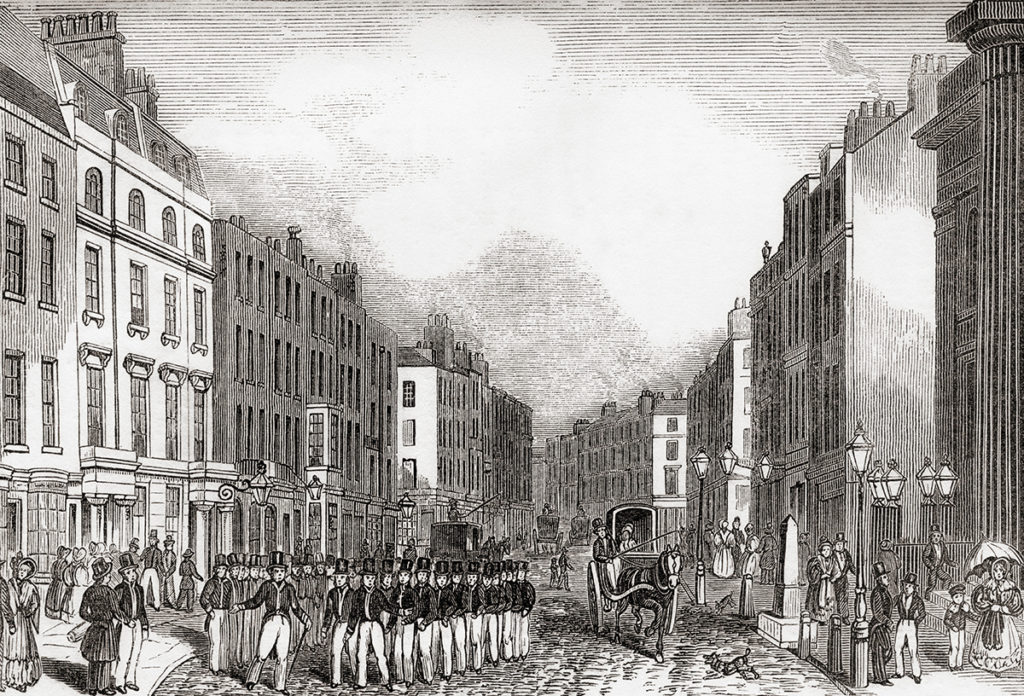“The name of Bow Street became revered by honest citizens and feared by the dishonest.”
Alan Cook and Peter Kennison
The history of policing on Bow Street dates back to the 18th Century, when Thomas de Veil opened a Magistrates’ Court at No.4 Bow Street. Over the next 266 years some of the country’s most significant developments in criminal justice took place here, from the inception of the Bow Street Runners (London’s first official law enforcement service) to modern extradition cases such as those brought against Chilean general and politician Jose Ramon Pinochet.

Timeline
Early 1700’s Policing on Bow Street was carried out by local Watchmen patrolling the streets, armed only with a bell, rattle, lantern and staff.
1740 Magistrate Thomas de Veil opens a court house in his family home at No. 4 Bow Street, and begins investigating local crime.
1749 de Veil’s operations are taken over by Henry Fielding. Fielding employs a number of officers to help him tackle and prevent crime. These officers quickly earn the nickname the Bow Street Runners and Patrols.
1751 Henry’s half-brother, John Fielding takes over policing and the court. John is blind and relies on his hearing to recognise the voice of offenders. He soon becomes known as the Blind Beak of Bow Street.
1782 John Fielding dies, Bow Street operations are taken over by Sampson Wright.
1813 The house next door, No. 3 is bought and knocked through to create more space.
1832 Bow Street’s first dedicated police station is built at No. 33/34, whilst court proceedings still take place at No. 4/3.
1839 The work of the Bow Street Runners is officially incorporated into the newly formed Metropolitan Police
1881 Under the control of the Metropolitan Police, a purpose-built joint police station and Magistrates’ Court opens at No. 28 Bow Street, replacing all previous buildings.
1895 Playwright, poet and author Oscar Wilde is detained over night in the cells at Bow Street Police Station following accusations that Wilde is a homosexual – which was illegal at the time.
1908 Following a Suffragette’s demonstration at the Houses of Parliament, Emmeline Pankhurst, Christabel Pankhurst and Mrs Drummond stand in the dock at Bow Street on charges of breaching the peace. Christabel Pankhusrt becomes the first trained female lawyer to cross examine a witness in court.
1967 PC Norwell Roberts begins work at Bow Street as the Metropolitan Police’s first black officer.
1968 Often considered London’s most notorious gangsters, The Kray Twins appear at Bow Street Magistrates’ Court charged with two counts of murder.
1981 WPC Lee-Jane Yates begins work at Bow Street as the Metropolitan Police’s first female Chinese officer.
1992 After 111 years the facilities at Bow Street Police Station are no longer fit for purpose. Officers and operations are transferred to the nearby Charring Cross Police Station, and on 5 October the station doors close for the last time.
2006 The court remains open beyond the closure of the police station. By the time it eventually closes, a court had operated on Bow Street for 266 years.
